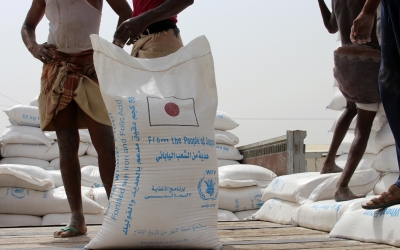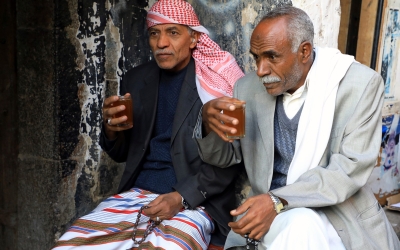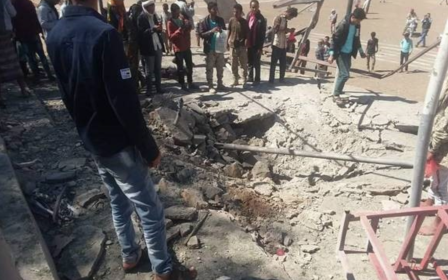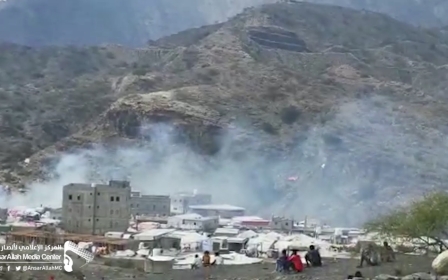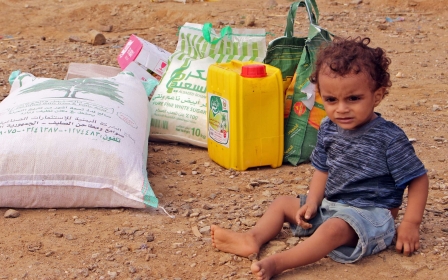UN resumes grain milling in Yemen's Hodeidah after shelling-induced halt
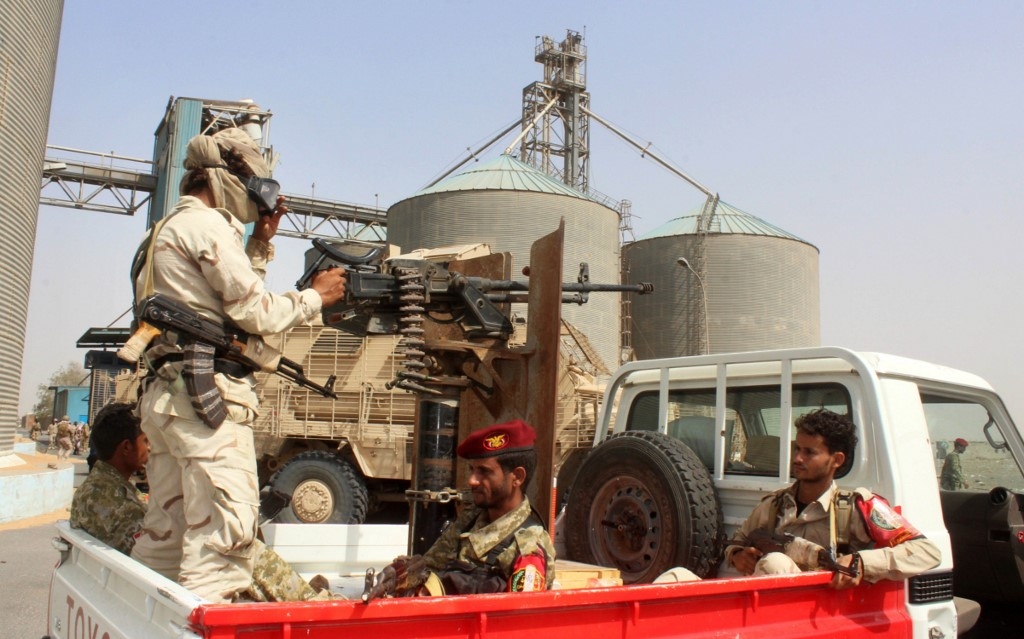
The United Nation's World Food Programme (WFP) said on Monday it has resumed milling grain for food aid in Yemen after a brief halt due to shelling damage.
On 26 December, artillery fire hit WFP grain stores at the Red Sea Mills in the highly strategic port city of Hodeidah, leading to a four-day halt in milling, the organisation said in a statement.
New MEE newsletter: Jerusalem Dispatch
Sign up to get the latest insights and analysis on Israel-Palestine, alongside Turkey Unpacked and other MEE newsletters
The mill and silos have become a focal point of Yemen’s nearly five-year conflict, which has triggered what the UN describes as the world's worst humanitarian crisis. Some 24 million Yemenis - more than two-thirds of the population - are in need of aid.
The UN has been attempting to enforce a ceasefire in Hodeidah since an agreement was reached in Sweden in December 2018, when Yemeni warring parties agreed to redeploy their fighters outside the port and away from areas that are key to the humanitarian relief effort.
Fighting in Hodeidah, whose port serves as the gateway for the vast majority of the country's imports, has largely stopped since the ceasefire went into effect one year ago, but there have been intermittent clashes.
Both the internationally recognised government and the Houthi rebels who hold Hodeidah have been accused of violating the truce deal, while an agreed redeployment of forces has not yet been implemented.
Front line food
The Red Sea Mills lie on the front line between Hodeidah’s rival forces.
The WFP said in May that its mission and a technical team of the Red Sea Mills company had gained access to vital food aid on the outskirts of Hodeidah, after previously delaying a mission to retrieve it for "security reasons".
Prior to the UN losing access in September 2018, the Red Sea Mills held 51,000 tonnes of grain - enough to provide food for more than 3.7 million people for a month.
Once the agency regained access in February last year, hopes were raised that the wheat could be released for consumption by Hodeidah's starving population.
Yet soon after, reports emerged that the wheat, which constitutes one-quarter of WFP’s in-country stock, was infected by weevils and rotten.
Following testing, those reports appeared correct - although a WFP spokesperson told Middle East Eye that much of the wheat was still salvageable.
"WFP carried out a full assessment of the condition of the wheat and laboratory tests confirmed it was infested with insects, which has resulted in some hollow grains," one of the agency's spokespeople, who preferred not to be named, told MEE last March.
"The wheat needs to be fumigated before it can be milled into flour. We anticipate the flour yield will be slightly lower than normal due to the hollow grains that will be sifted out during the milling process."
On Monday, the WFP said that so far, just over 4,500 tonnes have been milled into flour and dispatched.
The Armed Conflict Location and Event Data project (ACLED), an American NGO, has reported that more than 100,000 people have died as a result of the war.
Last year, Save the Children estimated that 85,000 children under five had died from acute malnutrition since a Saudi-led coalition entered the conflict on the government's behalf in 2015.
Middle East Eye delivers independent and unrivalled coverage and analysis of the Middle East, North Africa and beyond. To learn more about republishing this content and the associated fees, please fill out this form. More about MEE can be found here.


